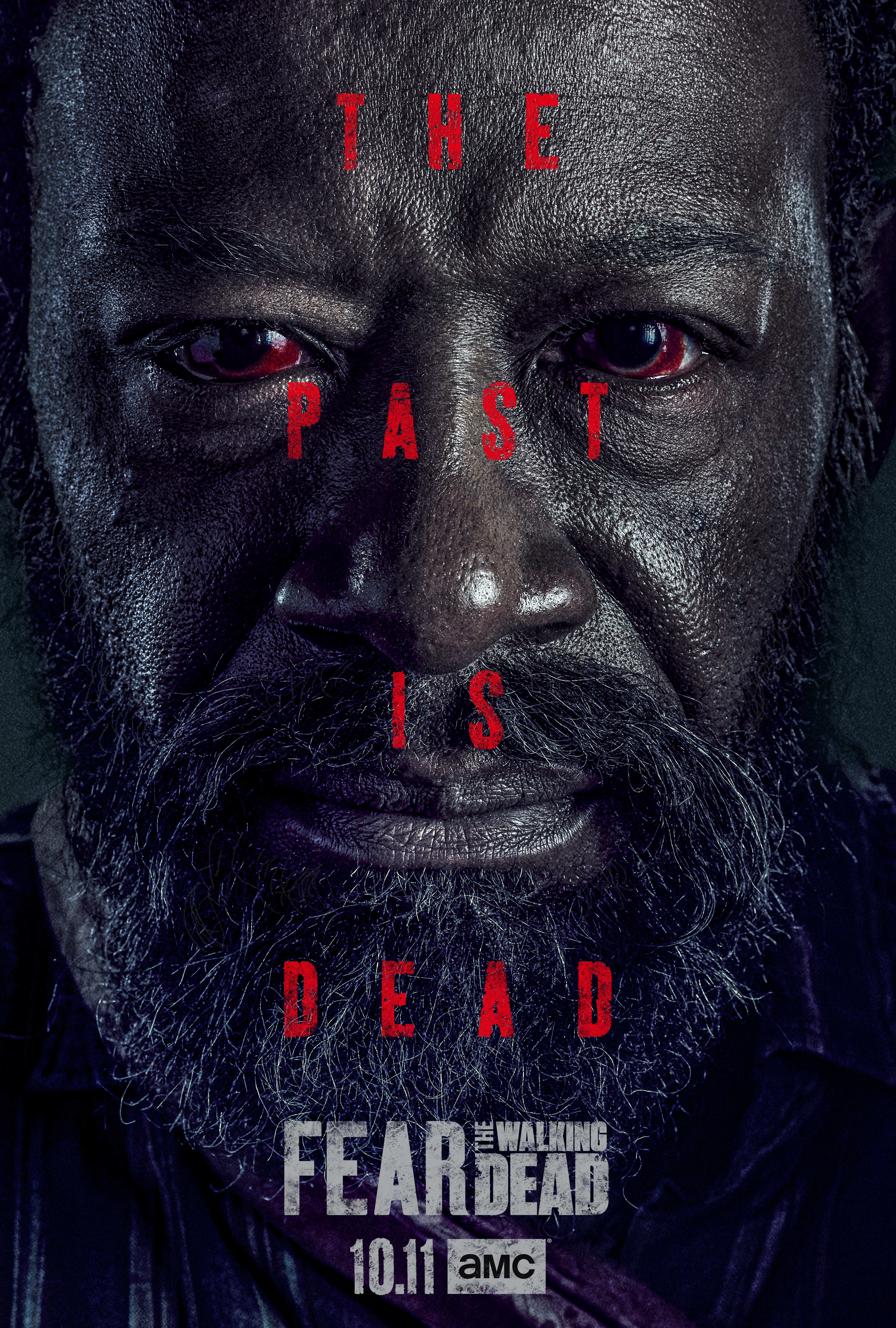The long-missing
Daniel Salazar (Rubén Blades) is a “changed man”
when he resurfaces in
Fear the Walking Dead Season Five, says co-showrunner Ian Goldberg.
“Salazar has had an incredible journey from where we left him at the end of Season Three to where we will find him in Season Five,” Goldberg said at WonderCon in Anaheim, California.
“Over the course of Season Five you’re going to find out where he is now, what he’s been through, and you’re going to see how it’s changed him. And we’re going to see that the Salazar that we meet this season, while of course there’s history between the characters, he’s a changed man. Can’t say how he’s changed, but you’ll see that there’s been some real change there.”
The trailer, premiered at WonderCon, hints at a potential confrontation between a gun-toting Daniel and “frenemy” Victor Strand (Colman Domingo), who is again accused by Daniel as talking “too much.”
“He’s like a cat with nine lives, he’s like the Terminator,” Domingo said of Daniel, who was last seen being swallowed up by the Gonzalez Dam explosion triggered by Nick Clark (Frank Dillane) in Season Three.
Though Blades could give little away about his return, the star said he’s “very, very happy to be here” when thanking fans and WonderCon panel attendees.
“I’m really thankful to everyone for the support of the character, Daniel Salazar. I’m never sure what’s going to happen here. And I think no one is,” Blades said.
“In the show, all of a sudden you’re there, and then you’re not. The thing with Salazar is he’s like a cockroach, very hard to kill. He’s a survivor. So he keeps on going. I’m just very, very happy to be back with my old friends and my new friends. Thank you all, really, for keeping Salazar alive.”
Blades, too, is mostly kept in the dark, pointing to
Fear executive producer and
Walking Dead chief content officer Scott Gimple as being “very, very, very quiet.”
“I pretty much understand Salazar. So I can go back very easily to what he is. What is a little difficult at times is the writers always know more than you,” Blades said.
“And when you do that jump, you have to sort of go with what’s written, but at the same time, what the memory of what this character is. So that even when you give up the line, you’re still holding onto something, or give it an ambiguous delivery, so that you can always retreat, go back, once you understand what is really happening. Because they know more. I mean, I have a backstory that I wrote for myself, so I use that. But with these people, trying to get anything out of them is like pulling teeth.”








